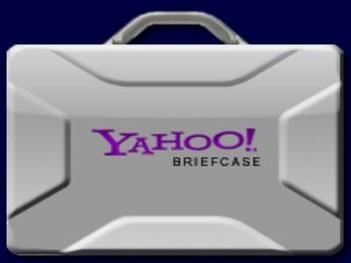
I received an email recently from Yahoo!, which told me that they were discontinuing the Yahoo! Briefcase service and that I should remove any files I wanted or abdicate access by Tuesday, March 30, 2009.
Admittedly, it’s been a while since I used briefcase, but now faced with the sense of loss of a service I rarely visited, has made me question the value — perhaps even long-term stability — of online storage.
From the Yahoo! Help pages:
Q: When and why is Yahoo! Briefcase closing?
A: We will close Yahoo! Briefcase on Tuesday, March 30, 2009. After this date, you will be unable to access Yahoo! Briefcase or your files within the Yahoo! Briefcase account.
Why? Because, in a Web 2.0 world where Yahoo! Mail has unlimited storage and Flickr offers media sharing, users and services have outgrown what the Yahoo! Briefcase service can provide. As such, Yahoo! is closing Yahoo! Briefcase to focus our efforts elsewhere.
I agree, what was initially innovative when Briefcase first launched is no longer. However, I do not consider Flickr a replacement. Rather, I see Flickr as a place to upload a stream of photos from a recent Loreto, Napa or Seattle trip; not to organize files or documents I want to save for future reference or collaboration.
So with my little friend gone and my continued need for online information sharing and storing that I can securely access from anywhere along the West Coast, what are some alternatives?
There is Box.net which I have used and the interface works well. You can expose it as a widget across different websites that require a common place to store documents and other files. In fact, it is noted as a successor to xDrive which was around just a couple of years ago. For larger sets of files, ElephantDrive.
What is surprising is that even banks have gotten into the game by piggy-backing off their well-known attributes of being secure places to store money (current financial crisis aside).
Wells Fargo, for example, launched their vSafe service. Think of it as a virtual safety deposit box for information. This latter proposition of a secure location to store information that can be accessed anywhere has value, especially as the cloud computing trend grows. One use case: the storage of personal medical records that individuals can share with doctors and providers that need the information.
No doubt, there are benefits from being able to share digital documents and information. Doing it in a trusted and secure manner will be the technical and behavioral hurdle we need to overcome.


